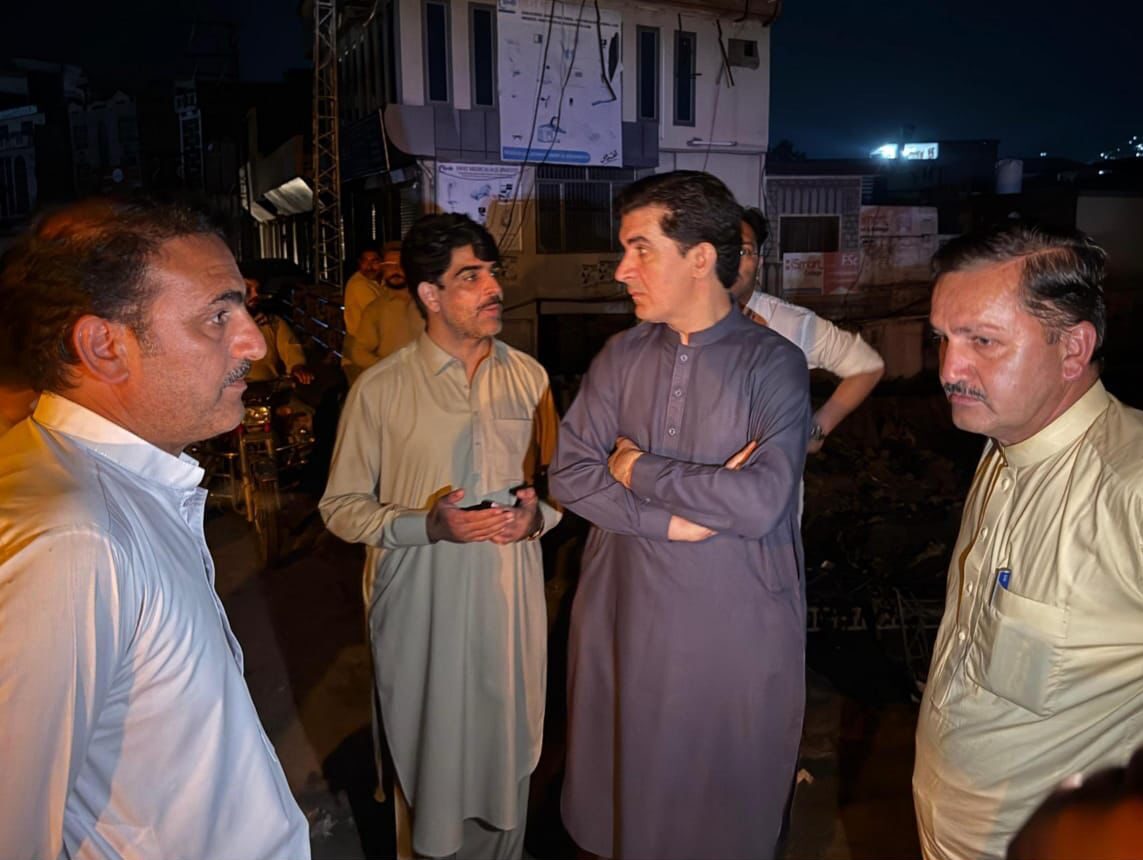Our Correspondent
SWAT: Khyber Pakhtunkhwa Health Adviser Ihtesham Ali, accompanied by Member Provincial Assembly Sultan Rome, visited several flood-affected areas of Swat district on Saturday to assess the damage and review the provision of healthcare services to the victims.
The adviser was joined by Commissioner Malakand Division Abid Wazir, Deputy Commissioner Swat Saleem Jan Marwat, officials from WSSC Swat, and other relevant authorities during the visit.
The delegation toured flood-stricken localities including Mingora, Mula Baba, Makan Bagh, Landikas, Bangladesh, and Haji Baba, where Adviser Ali was briefed on the extent of damage caused by the recent floods and the government’s ongoing relief efforts. Commissioner Wazir provided a detailed overview of the administrative response and rehabilitation measures taken so far.
Adviser Ali inspected free medical camps established in the affected areas, where emergency healthcare services are being provided under the supervision of the provincial health department. These camps are offering essential medical aid, disease prevention services, and mental health support to displaced families.
Speaking to media representatives, the health adviser commended the dedication of medical staff and volunteers:
“The resilience of our people is commendable. Our health teams are working around the clock to ensure that no individual is left without care. We are committed to strengthening these efforts and expanding services wherever needed.”
Later, Adviser Ali visited the Saidu Group of Teaching Hospitals, where he was briefed by the Medical Superintendent on the hospital’s capacity to handle flood-related cases. He toured various wards and units, met with patients, and reviewed the availability of medicines, staff deployment, and emergency protocols.
He issued directives to the Deputy Commissioner, District Health Officer, and Medical Superintendent to ensure the provision of comprehensive healthcare services to flood victims, with a particular focus on maternal and child health, mental health support, and disease surveillance.

